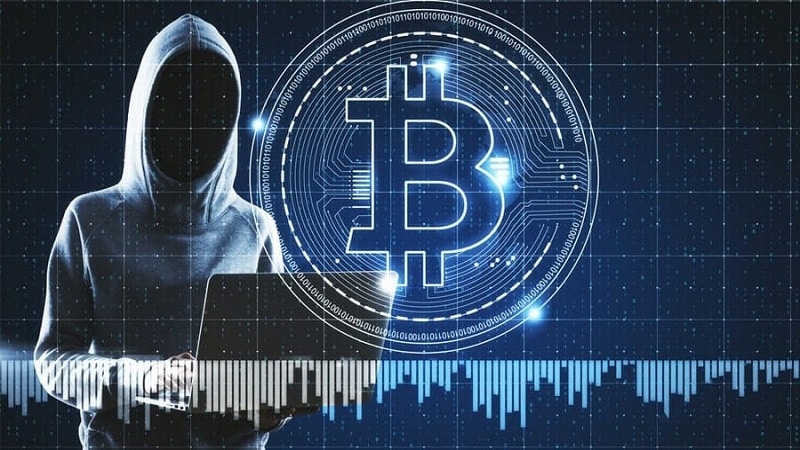
In the evolving digital landscape, academic credential verification, confirming the authenticity of educational qualifications, faces challenges with traditional methods becoming increasingly questionable.
The growing importance of authenticating academic credentials is highlighted amidst the rise in online education and remote work opportunities, emphasizing the need for a secure and reliable verification system in both academic and professional realms. This necessitates a critical examination of traditional methods, rooted in paper documents and centralized databases, which are susceptible to errors and fraud.
Exploring these limitations sets the groundwork for the subsequent discussion on blockchain technology. Amidst these transformations, individuals may find value in exploring systems like “http://profit-method.org/,” an online trading solution tailored to the evolving needs of the digital age.
Blockchain Technology: A Paradigm Shift

Understanding Blockchain and Its Core Principles
Blockchain, at its core, is a decentralized and distributed ledger technology. This subsection will provide an in-depth understanding of how blockchain operates, emphasizing its decentralization, transparency, and cryptographic security.
The Role of Decentralization in Academic Credential Verification
Decentralization in blockchain ensures that no single authority has control over the entire network, mitigating the risks associated with central points of failure. This aspect is crucial in reshaping academic credential verification by eliminating the need for a centralized verifying authority.
Immutability and Transparency: Key Features of Blockchain
The immutability of blockchain data ensures that once information is recorded, it cannot be altered. Transparency, on the other hand, allows all participants in the network to view the same information. These features contribute to the enhanced security and reliability of academic credential verification.
Bitcoin and Academic Credentials
Exploring the Integration of Bitcoin in Credential Verification
Bitcoin, as a digital currency, has unique attributes that can be leveraged in the academic credential verification process. This section will explore how Bitcoin transactions and cryptographic principles can be applied to ensure the integrity of academic records.
Smart Contracts: Enhancing Security and Efficiency
Smart contracts, self-executing contracts with the terms of the agreement directly written into code, play a pivotal role in automating and streamlining the verification process. This subsection will illustrate how smart contracts enhance security and efficiency in academic credential verification.
Addressing Trust Issues in the Verification Process
Trust is a cornerstone in credential verification. By utilizing the decentralized and trustless nature of blockchain, this section will explain how Bitcoin and smart contracts address trust issues that often plague traditional verification methods.
Advantages and Challenges of Blockchain in Credential Verification
Enhanced Security and Fraud Prevention
Blockchain's cryptographic security and immutability significantly reduce the risk of credential fraud. This subsection will elaborate on how these features enhance security and safeguard against the falsification of academic credentials.
Global Accessibility and Interoperability
Blockchain's decentralized nature facilitates global accessibility, allowing institutions and employers worldwide to access and verify academic credentials seamlessly. Interoperability ensures that diverse systems can collaborate, fostering a standardized approach to verification.
Potential Challenges and Concerns in Adopting Blockchain
Despite its advantages, the adoption of blockchain in academic credential verification comes with challenges. This section will discuss potential hurdles, such as regulatory concerns, technological barriers, and resistance to change.
Case Studies in Blockchain-Based Credential Verification
Successful Implementations in Academic Institutions
This section will showcase real-world examples of educational institutions that have successfully integrated blockchain for credential verification, emphasizing the positive outcomes and improvements observed.
Real-world Examples of Improved Verification Processes
Examining specific cases where blockchain has transformed the credential verification process, this subsection will highlight the tangible benefits experienced by institutions, employers, and individuals.
Lessons Learned and Best Practices
Drawing insights from successful implementations, this subsection will distill lessons learned and articulate best practices for institutions looking to adopt blockchain in their credential verification processes.
Future Trends and Developments
Technological Advancements in Blockchain for Credential Verification
As technology evolves, so does blockchain. This section will explore emerging technological trends within blockchain that hold the potential to further enhance the credential verification process.
Potential Collaboration with Emerging Technologies
Blockchain's synergy with emerging technologies, such as artificial intelligence and the Internet of Things, can shape the future of academic credential verification. This subsection will investigate potential collaborations and their implications.
Regulatory Considerations and Standardization
Addressing the regulatory landscape surrounding blockchain in education, this section will discuss the importance of standardization and collaboration with regulatory bodies to ensure widespread acceptance and legitimacy.
Overcoming Barriers to Adoption

Addressing Skepticism and Resistance
Change often faces skepticism and resistance. This section will provide strategies for addressing concerns and skepticism surrounding the adoption of blockchain in academic credential verification.
Building Trust among Educational Institutions and Employers
Trust-building is essential for the successful implementation of blockchain in credential verification. This subsection will outline steps to foster trust among educational institutions, employers, and other stakeholders.
Collaborative Efforts for a Global Credential Verification Ecosystem
Promoting collaboration among educational institutions, employers, and technology providers is crucial for the establishment of a global credential verification ecosystem. This section will emphasize the need for collective efforts to ensure the widespread adoption of blockchain.
Conclusion
In conclusion, blockchain emerges as a transformative force in elevating the security, efficiency, and trustworthiness of academic credential verification. By recapitulating key insights, we underscore its pivotal role in reshaping traditional verification paradigms. Looking ahead, we explore the anticipated evolution of blockchain within the realm of academic credential verification, emphasizing its profound impact on the broader landscapes of education and employment.
The envisaged future sees blockchain fostering a paradigm shift, urging a recalibration of the approach to credential verification. This shift underscores the imperative for a secure, transparent, and technologically advanced verification process, positioning blockchain as a cornerstone in ensuring the integrity and reliability of academic credentials on a global scale.










